Newsletter

2-4 Cochranes Road, Moorabbin VIC 3189 Australia Email:admin@ekosolve.com.au Phone: +17472009412, +61433747380
NEWSLETTER – OCTOBER 2020
In This Issue:
- Ekosolve Lithium Extraction Process a success with Argentine Brines
- Gigafactories continue to expand in Asia, Europe and Americas
- Lithium Battery storage growing as an adjunct to Fossil energy
- More countries plan to phase out diesel/petrol vehicles for EV
- Electric powered planes, ships, trucks and trains move forward
Four minute Read:
Ekosolve™ announced they have completed all their development work on the novel state of the art solvent extract process for efficiently extracting lithium from brines. They are ready to build a large Pilot Plant in Melbourne, Australia and are seeking co-investors. At the lab scale their unique Solvent Extraction process that has significant advantages over most other technologies, successfully completed all the trials and tests and is ready for future development.
Gigafactory Expansion
China’s top battery manufacturer CATL will supply Tesla with lithium iron phosphate (LFP) batteries for Model 3 production at its newly built $2 billion factory outside Shanghai. Northvolt labs – needs €1.6 billion, 8 GWh hours, 250-300,000 batteries a year German manufacturer Tesvolt announced its plans to build one in Germany Tesla’s Nevada site aims to produce 35GWh of batteries per year by 2024, its Gigafactory 4 is cleared the site in Grünheide, near Berlin French battery manufacturer Saft (part of Total since 2016) and the PSA Group (with its Opel brand) two lithium-ion EV battery cell plants in Europe with a total output of 48 GWh annually by 2030, a €5 billion investment, supported by nearly €1.3 billion in public funding from the European Union. BYD northwestern Qinghai province is the world’s biggest in terms of production capacity. It has a production capacity of 24 gigawatt-hours (GWh), which is enough to power 570,000 EV360, (360km travel) Contemporary Amperex Technology, China’s largest EV battery maker, is building a 24-GWh factory and will soon have total capacity of 88GWh. Eve Energy 1.5GWh, Funeng Technology, Guoxuan High-Tech, Quuensland Australia and the list goes on – Korea – SK , Samsung SD and others
Lithium Battery Storage
Less than two years ago, Tesla built and installed the world’s largest lithium-ion battery in Hornsdale, South Australia, using Tesla Powerpack batteries. Since then, the facility saved nearly $40 million in its first year alone and helped to stabilize and balance the region’s unreliable grid.
Battery storage is transforming the global electric grid and is an increasingly important element of the world’s transition to sustainable energy. To match global demand for massive battery storage projects like Hornsdale, Tesla designed and engineered a new battery product specifically for utility-scale projects: Megapack.
Country | Ban Announced | Status and proposed commencement | Scope | Details |
Austria | 2016 | 2020(GovernmentPlan) | Non-Electric | New Vehicle Sales[29] |
Belgium | 2020 | 2026[30] | Diesel,Petrol | New Company Cars |
California | 2020 | 2035[31] | Emitting | New Vehicle Sales |
Canada | 2017 | 2040(Climate Plan)[32] | Emitting | New Vehicle Sales |
China | 2017 | Researching a Timetable[33] | Diesel,Petrol | New Car Sales |
Costa Rica | 2050[34][35] | Researching a Timetable[33] | Diesel,Petrol | New Car Sales |
Demark | 2018 | 2030-35[36] | Diesel,Petrol | New Vehicle Sales(2030),all vehicle use(2035) |
Egypt | 2018 | 2040[2] | ICE[note 2] | New Vehicle Sales[2] |
France | 2017 | 2040(Climate Plan)[37] | Diesel,Petrol | New Car Sales |
Germany | 2016 | 2030(Bundesrat decision)[38] | Emitting | New Car Sales[38] |
Iceland | 2018 | 2020(Climate Plan)[39] | Diesel,Petrol | New Car Sales |
India | 2017 | 2030(Government Target)[40] | Non-electric | All Vehicles[40] |
Ireland | 2019 | 2030(Government Bill)[41] | Diesel,Petrol | New Car Sales[41] |
Israel | 2018 | 2030[20] | Diesel,Petrol | New Imported Veicles |
Netherlands | 2017 | 2030( Coalition agreement)[42] | Diesel,Petrol | All Cars |
Netherlands | 2017 | 2025(Tax and usage incentives)[43] | Diesel,Petrol | All Cars |
Singapore | 2020 | 2040(Incentives anelectric vehicles)[44] | Diesel,Petrol | All Vehicles |
Slovenia | 2017 | 2030(Emission limit of 50 g/km)[45] | Diesel,Petrol | New Car Sales |
Spain | 2018 | 2040[2] | ICE | New Vehicles Sales[2] |
Sri-Lanka | 2017 | 2040[46] | Diesel,Petrol | All Vehicles |
Sweden | 2018 | 2030 (coalition agreement)[47] | Diesel, petrol | New car sales |
Taiwan | 2017 | 2040[48] | Diesel, petrol | All bus use (2030), all motorcycle sales (2035), all car sales (2040).[48] |
United-Kingdom | 2020 | 2030,[49] 2035(hybrid)[50] | Emitting | New car sales |
Electric powered planes, ships, trucks and trains move forward:
Rail – In Germany, where only about 40 percent of track is electrified, the trains will clean the air along routes that might have been impractical or prohibitively expensive to electrify, the state of Baden-Württemberg has ordered 20 two-car trains built in Germany by Siemens, who will oversee energy consumption and energy costs over a nearly 30-year service period.
It’s the first such order for battery-electric trains for Siemens Mobility, who will deliver them by June 2023. In them, a lithium-ion battery pack is mounted under the train’s floor and is charged while it moves along via overhead lines, using them to both power the train and charge the battery. When the train reaches a stretch of rail with no overhead lines, the battery takes over.
The new trains are part of Siemens’ Mireo train platform for regional and commuter rail— boasting weight reductions and improved aerodynamics. Configurations range from two to seven cars, and top speed, depending on the version, ranges from 87 to 124 mph.
Germany and France are two markets that have started investing in battery-electric trains. Last month another company, Alstrom, announced that it has a first contract to supply battery-electric regional trains for Germany’s Leipzig-Chemnitz line with three-car trains that can cover up to 75 miles and reach a top speed of 99 mph.
Planes
Companies such as Safran S.A., Boeing, Airbus, and Raytheon have already revealed plans to re-conceptualize the modern airplane. At Boeing, engineers have created the SUGAR Volt concept plane which combines electricity and fuel to power flight, much like a hybrid automobile does. Airbus recently unveiled a battery-powered aircraft called an E-Fan, which the company is hoping to sell in the recreational market by 2017, and eventually create commuter planes within 20 years. There is a lot at stake in the race to innovate: the electric aircraft market is projected to reach over $22 billion in the next fifteen years
